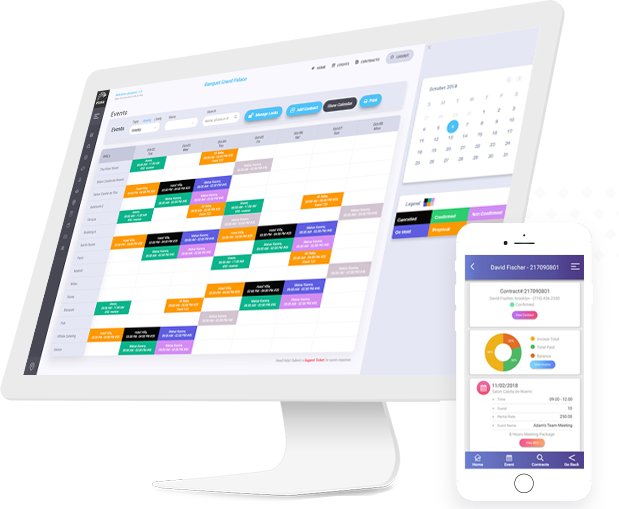When was the last time you felt like your system is struggling to keep up with your business vision? In this economy of swift digital advancements and adaptations, managing multiple business functions - including finance, operations and logistics requires more than just efficient tools.
Organisations always look ahead for the next opportunity to scale and one of the biggest ways by which you can result in creating hindrance, is by moving forward with existing systems that are stunting your growth.
This is where a unified and advanced system such as an Enterprise Resource Planning (ERP) is needed, as it offers features that integrates all critical business functions into a single platform. Whether you're in manufacturing, retail, or services- Enterprise Resource Planning (ERP) can help you to streamline operations, enhance visibility, and drive efficiency.
Let’s explore how these systems can transform your business and why choosing the right ERP solutions company is crucial for success.
The Challenges of Disconnected Systems
Most companies have distinct systems for finance, inventory, HR, and customer management, and individually, these pieces of software may be doing their respective jobs just fine. But when they don't communicate with each other, it becomes complicated. When information gets stuck in separate systems, it makes it difficult to see a good picture of what's the actual issue is. Employees could potentially waste time, by all the manual transfer of information between systems which thereby will result in slowing things down and also causing expensive errors.
Teams operate in their own silos, causes more trouble rather than making the collaborations easy because as the business expands, these isolated systems become an ever-growing bottleneck. For manufacturers, it's worse without immediate updates on inventory or production timelines, delays and stockouts are a daily trouble.
The Role of ERP in Unifying Your Business Operations
Enterprise Resource Planning systems eliminate these pain points by integrating all business processes into a single, cohesive platform. Here’s how:
1. Improved Operational Efficiency
Automating routine tasks such as invoicing, payroll, and order processing results in reducing manual work and errors. For SMEs (Small and Medium Enterprises), this means doing more with fewer resources.
2. Centralized Data Management
ERP solutions provide a single source of truth, ensuring all departments access real-time, accurate data. No more version conflicts or outdated spreadsheets just optimised information flow.
3. Enhanced Decision-Making
With built-in analytics, ERP systems generate actionable insights. Managers can track KPIs, forecast demand, and make data-driven decisions swiftly.
4. Scalability & Flexibility
Whether you opt for customized ERP solutions or industry-specific modules, these systems grow with your business. Adding new users, locations, or functionalities is effortless.
Solving Manufacturing Challenges with ERP
Challenges are what causes manufactures to focus on unpredictability that occurs on supply chains, delayed production, and ever-changing regulations that keep things from running smoothly to constant battle. That’s where ERP systems come in as they don’t just manage data but instead solve real-world problems.
Take inventory, for example. Instead of guessing how much raw material to order or scrambling when stock runs low, ERP offers real-time visibility so that manufacturers always have what they need, without excess waste. On the production floor, automated scheduling keeps orders moving efficiently, cutting down on troubles that may result in losses. And when it comes to compliance? ERP takes the headache out of audits with built-in checks that ensure nothing slips through the cracks.
This is the reason why industry leaders like Toyota and Siemens rely on ERP because in a sector where margins are tight and competition is fierce, these systems are essential for staying lean, agile, and ahead of the game.
Choosing the Right ERP Solutions Company
Choosing wisely while selecting the right ERP solutions for your company is crucial. Keep your focus on and choose an experienced provider in your industry, despite the industry that you are in – be it manufacturing, retail, or services. The best solutions will offer you with customized ERP solutions, letting you tweak workflows, connect specialized tools (like CRM or eCommerce platforms), and even add industry-specific features (such as batch tracking for pharmaceuticals). This tailored approach boosts efficiency and ensures your team actually uses the system.
Also, check if they provide strong support and training, because let's admit the truth-nobody wants a system that’s hard to use or breaks without help. And since your business will grow, make sure the ERP can scale with you. For SMEs, cloud-based options are a smart choice they’re affordable, easy to set up, and don’t require big upfront investments because the right ERP is a long-term partner for success.
By now we know that systems that are disconnected in nature, will drain the productivity and will result stunted growth. ERP integrates operations, boosts visibility, and drives competitiveness for manufacturers and SMEs alike. The right ERP is a strategic leap toward efficiency and scalability and therefore it is essential to make sure to partner up with experts to implement a customized, future-ready solution.
Still using patchwork software? Upgrade now with expert solutions such as Veuz Concepts, today!









.jpg )







Leave a comment